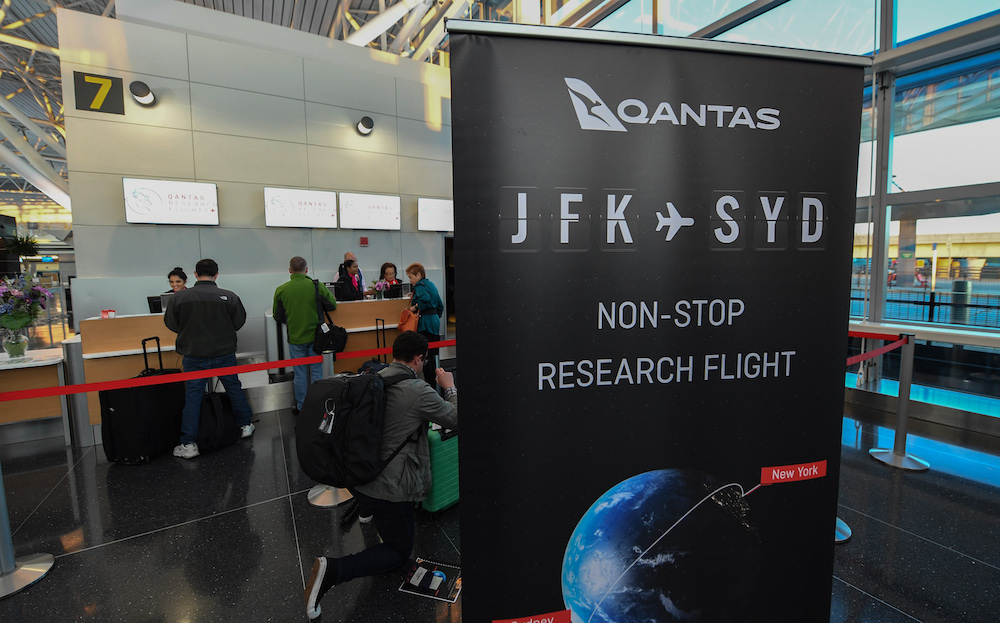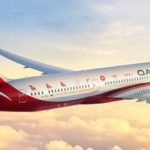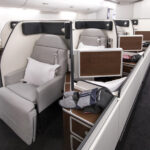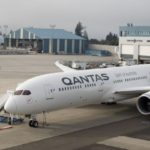
(TAN): It is possible to reduce the impacts of jetlag by modifying the inflight travel experience, according to research findings by Australian airline Qantas and the University of Sydney’s Charles Perkins Centre.
A Qantas news release, citing the research findings, said different lighting and sleep schedules, mealtimes, and specific ingredients like chilli and chocolate during long-haul flights have been shown to contribute to improved traveller wellbeing. Movement and exercise are also key elements.
The research was conducted during test flights for Qantas’ Project Sunrise program, which will connect Sydney directly with New York and London for the first time from late 2025.
[ALSO READ: Air France reopens fully redone lounge at San Francisco airport]
The airline has been working with the University of Sydney’s Charles Perkins Centre since 2015 when it first began preparations to launch Perth to London direct flights.
Qantas operated three Project Sunrise research flights from New York and London to Sydney in 2019 in partnership with Australian researchers to collect real-world passenger data.
Researchers travelled on the aircraft and monitored 23 volunteer customers who were fitted with wearable device technology during the 20-hour flights as they followed a specially designed menu, lighting, sleep and movement sequences.
Initial findings, as yet unpublished, indicate that, compared to customers on a traditional inflight sequence of eating and sleeping, those on the tailored schedule experienced:
- less severe jetlag (self-reported)
- better sleep quality inflight
- better cognitive performance in the two days after flight
[ALSO READ: A helicopter ride, and afternoon tea on top of a mountain]
The inflight trials involved tailored cabin lighting schedules to facilitate adaption to the destination time zone and integrating simple stretch and movement activities.
They also adjusted the timing of meal services to align the body clock and encouraged wake and sleep by using specific menu items including fish and chicken paired with fast-acting carbohydrates, as well as comfort foods like soups and milk-based desserts. The aim was to promote the brain’s production of the amino acid tryptophan (‘Tryp’) to help passengers drift off more easily.
The specially designed Airbus A350s that Qantas will use for Project Sunrise flights include an onboard “Wellbeing Zone” where passengers can take time out to stretch and do simple exercises onboard, guided by video screens.
[ALSO READ: IHG’s Hotel Indigo brand debuts in South America with Galapagos property]
Peter Cistulli, professor of sleep medicine at the University of Sydney, said while the research was ongoing, there were clear signs that the interventions implemented during the trial flights reduced the impact of ultra long-haul travel. “The early results are promising, and it’s given us great momentum to look to the next stage of customer research to support Project Sunrise product and service design,” said Cistulli. “The early findings have given us optimism that we can make a real difference to the health and wellbeing of international travellers.”
Qantas Group CEO Alan Joyce said the national carrier was excited by the prospect of minimising jetlag and revolutionising international flying for all travellers.
“Our A350s will have about 100 fewer seats than most of our competitors, which gives us room for more space in all classes as well as a Wellbeing Zone for Premium Economy and Economy passengers to stretch. People can choose how they spend their time but we’ll make recommendations based on science around menu choices and best times to eat or rest. That extends to before and after the flight to improve how people feel when they arrive on the other side of the world.”
[ALSO READ: SAS opens reservations for its first ever commercial electric flight]
Parallel research has been done to manage crew wellbeing on these flights, which also draws on experience from other ultra long-haul flights operated by Qantas.
Qantas is scheduled to take delivery of its first A350 in late 2025, with the Project Sunrise launch route between Sydney and New York expected to take off shortly after.




